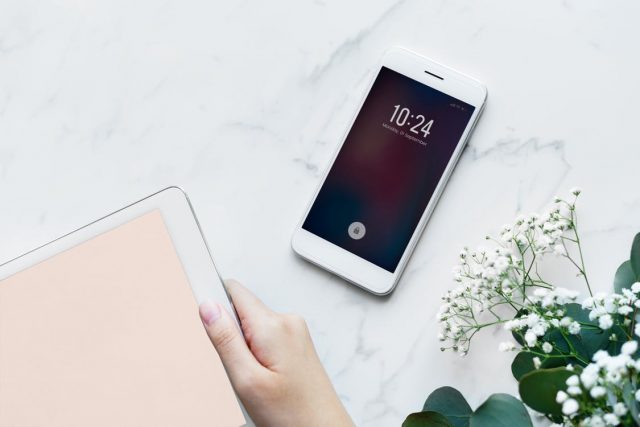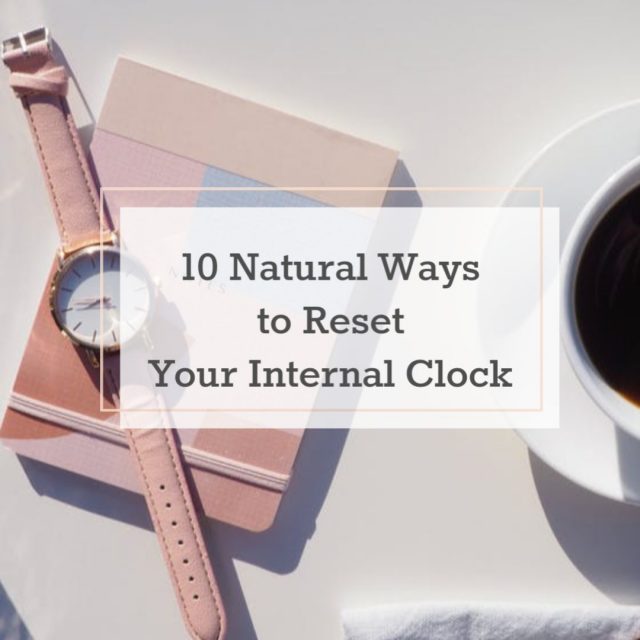Unfulfilled Potential: What to Do When You Can’t Be Your Full Self

This blog post contains affiliate links to resources you might find helpful, at no extra costs to you.
You know how you often feel tired and groggy in the afternoon? That’s your internal clock at work.
You might be more in tune with your work schedule than your body rhythm, but all of us are governed by a biological schedule. Circadian rhythm refers to the countless changes your body experiences over a 24-hour period. From your sleep-wake cycle to hormone production and daily fluctuations of alertness, circadian rhythms affect every aspect of your functioning.
The master internal clock that controls the different clocks throughout your body is a group of nerves in the hypothalamus called the suprachiasmatic nucleus (SCN). Each morning, light enters your eyes and travels along the optic nerve to signal to the SCN that it’s time to start the day’s circadian cycle.
For thousands of years, humans organized their days around their biological clock. But now that we are no longer getting up at sunrise, spending our days outdoors and going to bed when it gets dark, our body clocks get disrupted. And this can cause serious troubles. Research has linked disturbed internal clocks to anything from an increased chance at injuries and accidents to chronic health problems like obesity, heart disease and cognitive decline.
Your body clock is influenced by external cues like light, temperature and activity, as well as internal cues from hormones and neurotransmitters. But our modern lifestyle with artificial light, irregular eating patterns and late-night television continually gives our brains the wrong signals.
Most of us don’t catch enough natural light during the day, but do use artificial light to work and play all evening. We eat on the go, skip breakfast and have late-night snacks. All of this makes it difficult to fall asleep at night, which makes you want to sleep in on the weekends – causing a social jet lag that throws your biorhythm off even further. And let’s not forget the impact that real jet lags from traveling across timezones and shift work have on your internal clock.
Living with chronic illness can also throw your biological clock off. When you’re sick, your sleep schedule usually changes, either due to ‘painsomnia’ or an increased need for sleep. Your specific symptoms and medication may also affect your circadian rhythm. And if you’re housebound, there are also less cues that structure your day, like fixed work hours, a lunch break with colleagues and the commute home.
But whether you like it or not, circadian rhythms control how your body and mind function. If your natural rhythm is disrupted, how can you reset your internal clock?

Before we dive into the details, it’s important to note that not everyone’s internal clock runs at the same pace. In his book ‘The Power of When’, Michael Breus, PhD, distinguishes four different chronotypes:
Because each chronotype has a different natural rhythm, your ideal daily schedule will differ from your family and friends’ optimal day. However, there are plenty of general tips about how you can get back in sync with your bio-time. Take a look at these 10 ways to reset your internal clock.
Did you know that one of the best ways to reset your internal clock is to go camping? A small study found that spending one week in a tent without access to artificial light and electronic devices synchronized the campers biological clock to solar time. The participants naturally fell asleep and woke up earlier than usually, in sync with a natural light schedule.
If going for a trip in the woods isn’t an option for you to reset your body clock, you could mimic the effects of camping by following the tips below.
Light is one of the most powerful tools to activate the SCN and fine-tune your internal clocks. Unfortunately, most of us are stuck indoors during the day. But there are ways you can manipulate the light and dark to reset your body clock:
Zeitgebers are external cues that signal to your internal clock it’s time to wake up, eat, perform or sleep. Like we said before, light and body temperature strongly influence your daily rhythms, but don’t overlook lifestyle cues like meal times and your sleep-wake schedule.
You don’t necessarily need a strict schedule, but our bodies thrive on a predictable rhythm of getting up, having breakfast, getting ready for the day, being active and taking a break for lunch.

There’s a reason why many people around the world take a (coffee) break around 10h30 and 15h00. Those are the times of day when your cortisol levels are low and you might start to feel sluggish. Research indicates they are also the best moments to drink coffee or other caffeinated beverages. Consuming caffeine at different times of day, when your SCN already releases plenty of cortisol to boost your alterness and performance, reduces the benefits of drinking coffee – and may even harm your health.
So for optimal functioning of your internal clocks, don’t drink a cup of coffee first thing in the morning or after 3pm. (You can try one of these coffee alternatives instead.)
It may sound boring, but setting meal times sends a strong signal to your body clocks. Instead of grazing all day, have a protein-rich breakfast, nourishing lunch and not-too-heavy dinner. Eat light snacks like fruit, unsalted nuts or a sugar-free yogurt to keep your blood sugar stable in between meals if you like.
If you’re sensitive to caffeine, limit your intake of coffee, cola and chocolate, especially late in the day. To get a good night’s sleep, you could have a magnesium-rich banana or a bedtime green smoothie as an evening snack.
One sure way to elevate your heart rate and raise your body temperature is to move your body. Exercising in the morning tells your body and brains it’s time to get ready for the day. An easy manner to get your workout in early in the day is to walk or cycle to work. If that’s not possible, you could do a gentle series of sun salutations to stretch your body.
According to ‘The Power of When’, 90 minutes after waking and midday are the ideal times to go for a run, while strength training is best done in the later afternoon or early evening.
Going to bed and waking up at the same times every day, even on weekends, is the most important thing you can do to establish a healthy sleeping routine. As cozy as a long, lazy Sunday in bed is, you shouldn’t sleep in for more 45-60 minutes if you want to restore your biorhythm.
Also, if you snooze during the day, limit your naps to 20-30 minutes, preferably before 4PM. Any longer or later in the day will interfere with getting a good night’s sleep.
If your sleeping schedule is way off track thanks to insomnia, pain or medication, make gradual changes. Adjust your sleep and wake times by no more than 30 minutes at a time, and stick to each phase until your body’s used to the new rhythm.

In the evening, dim the lights to signal to your brain it’s time to relax. Even more important: turn off your electronic devices one hour before bedtime. The blue light coming from your screens interferes with the production of melatonin, the hormone needed to fall asleep.
Instead, create a relaxing bedtime routine that will help you wind down. Take a warm bath, drink a cup of calming chamomile tea and make time for a non-stimulating hobby like coloring or restorative yoga.
Like many people, you might enjoy a glass of wine to relax at night. But although alcohol may make you feel sleepy, it actually interferes with getting a good night’s rest, by suppressing the production of melatonin. What’s more, consuming alcohol disturbs your body clock, especially the internal clocks of your liver.
Prescription pills and over-the-counter drugs can also disrupt a normal sleeping pattern. Some medications may induce insomnia, while painkillers and antihistamines can cause drowsiness. If you suspect that your pills are messing with your internal clock, ask you doctor or pharmacist for advice on the best time and ways to take your medication.
This tip isn’t for everyone, but skipping one night of sleep has been studied as a part of treatment for depression and insomnia. If your internal clock is thrown way off, staying up one full day until your next normal bedtime could help.
However, please do not try this if you have to drive or operate heavy machinery the next day. You should probably also not skip a night’s sleep without consulting a medical professional if you’re suffering from mental health problems.
If you’re looking for more concrete advice on the best daily schedule for your chronotype, check out ‘The Power of When’ by Michael Breus to learn the perfect time to do everything.
Have you ever tried resetting your disturbed internal clock? What worked best for you?
If you enjoyed reading this article, you might also like: